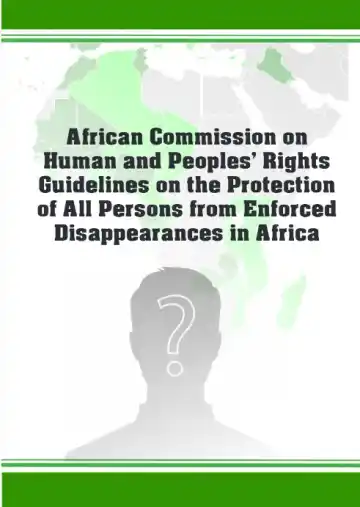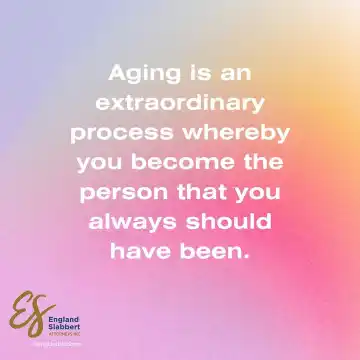| Dear Our Lawyer Legal Services 0214243487, We are reaching out to let you know about recent activity on LawFirms1.com. Use this to understand what content and strategies are resonating with your peers’ audiences and gain inspiration to fine-tune your own social media approach for maximum impact. Your own listing in Cape Town is found here: |
Please use the Login menu to access the admin section of your listing, or use this direct login link. Recent activity near you:
 [06/09] SHARED 3 TIMES Happy Secretary and Support Staff Day! We celebrate the Amazing Secretary’s and Support Staff Team who put in so much effort and dedication to contributing to making the Adriaans Brand World Class! #adriaansattorneys #secretarysday #supportstaff [06/09] SHARED 3 TIMES Happy Secretary and Support Staff Day! We celebrate the Amazing Secretary’s and Support Staff Team who put in so much effort and dedication to contributing to making the Adriaans Brand World Class! #adriaansattorneys #secretarysday #supportstaff |  [05/09] SHARED 0 TIMES *ADRIAANS LEGAL LYNX* Check out this article by our very own @lauren_slamet sharing on -Success from a woman in Law’s perspective. Click on the link below to read the article: https://adriaansattorneys.com/success-from-a-woman-in-laws-perspective/ #adriaansattorneys #womaninlaw #adriaanslegallynx [05/09] SHARED 0 TIMES *ADRIAANS LEGAL LYNX* Check out this article by our very own @lauren_slamet sharing on -Success from a woman in Law’s perspective. Click on the link below to read the article: https://adriaansattorneys.com/success-from-a-woman-in-laws-perspective/ #adriaansattorneys #womaninlaw #adriaanslegallynx |  [04/09] SHARED 2 TIMES Remember, legal preparedness is more than a safeguard; it’s a strategic asset that empowers entrepreneurs to confidently drive their business forward in a complex legal environment. Contact Adrians for all your business needs. #adriaansattorneys #legaltips [04/09] SHARED 2 TIMES Remember, legal preparedness is more than a safeguard; it’s a strategic asset that empowers entrepreneurs to confidently drive their business forward in a complex legal environment. Contact Adrians for all your business needs. #adriaansattorneys #legaltips |
 [10/09] SHARED 1 TIME ✨ Join us this evening for the virtual launch of an exciting new legal publication! Dive deep into discussions on African legal developments and don’t miss the chance to engage with experts in the field. ⏰ Event starts at 4pm SAT Register now and be part of this important conversation: https://zoom.us/webinar/register/WN_hY0RwtS5QQeRWu1GTm1hC… [10/09] SHARED 1 TIME ✨ Join us this evening for the virtual launch of an exciting new legal publication! Dive deep into discussions on African legal developments and don’t miss the chance to engage with experts in the field. ⏰ Event starts at 4pm SAT Register now and be part of this important conversation: https://zoom.us/webinar/register/WN_hY0RwtS5QQeRWu1GTm1hC… |  [04/09] SHARED 0 TIMES Accelerating Industrial Development in Africa! Africa is moving towards greater economic integration and industrial growth through initiatives like the Accelerated Industrial Development for Africa (AIDA) and the African Continental Free Trade Area (AfCFTA). These frameworks are key to boosting intra-African trade, creating jobs, and driving s… [04/09] SHARED 0 TIMES Accelerating Industrial Development in Africa! Africa is moving towards greater economic integration and industrial growth through initiatives like the Accelerated Industrial Development for Africa (AIDA) and the African Continental Free Trade Area (AfCFTA). These frameworks are key to boosting intra-African trade, creating jobs, and driving s… |  [03/09] SHARED 0 TIMES Did you know that the African Commission on Human and Peoples’ Rights (ACHPR) adopted guidelines to protect people from enforced disappearances? This powerful document is available for free on our platform at AfricanLII.org Here’s why it matters: It helps define and combat a serious human rights violation It provides a detailed legal framework… [03/09] SHARED 0 TIMES Did you know that the African Commission on Human and Peoples’ Rights (ACHPR) adopted guidelines to protect people from enforced disappearances? This powerful document is available for free on our platform at AfricanLII.org Here’s why it matters: It helps define and combat a serious human rights violation It provides a detailed legal framework… |
 [04/09] SHARED 0 TIMES DKVG Inc will be attending the upcoming Winelands Bridal Fair (7-8 Sept 2024) Visit us and get your Antenuptial Contract & Will drafted by us! Learn more: https://buff.ly/3QznRqC [04/09] SHARED 0 TIMES DKVG Inc will be attending the upcoming Winelands Bridal Fair (7-8 Sept 2024) Visit us and get your Antenuptial Contract & Will drafted by us! Learn more: https://buff.ly/3QznRqC |  [03/09] SHARED 0 TIMES National Wills Week! Let your will drafted, for Free, by our experienced attorneys 16 – 20 September 2024 Click Here: https://buff.ly/3QznRqC #NationalWillsWeek #WillsWeek #SeptmeberWillsWeek2024 #DKVGInc [03/09] SHARED 0 TIMES National Wills Week! Let your will drafted, for Free, by our experienced attorneys 16 – 20 September 2024 Click Here: https://buff.ly/3QznRqC #NationalWillsWeek #WillsWeek #SeptmeberWillsWeek2024 #DKVGInc |  [29/08] SHARED 2 TIMES If You Wait to Long You Might Not Be Allowed to Use The Mark That Forms Part of Your New Brand Choosing a brand name is an exciting step for any business or entrepreneur. It’s the name that will represent your hard work and creativity to the world. But before you get too attached to that perfect name as well as spend valuable time and money on res… [29/08] SHARED 2 TIMES If You Wait to Long You Might Not Be Allowed to Use The Mark That Forms Part of Your New Brand Choosing a brand name is an exciting step for any business or entrepreneur. It’s the name that will represent your hard work and creativity to the world. But before you get too attached to that perfect name as well as spend valuable time and money on res… |
 [09/09] SHARED 0 TIMES Make Mondays Great ___________________________ #MotivationMonday #Motivation #BusinessInspiration #MotivationalQuotes #InspirationalQuotes #StartYourWeekWithPositivity #PositiveVibes #EnglandSlabbert #CapeTown #Lawyers #CapeTownLaw #Law #LegalServices #LawFirm #Attorneys #Johannesburg #JohannesburgLaw [09/09] SHARED 0 TIMES Make Mondays Great ___________________________ #MotivationMonday #Motivation #BusinessInspiration #MotivationalQuotes #InspirationalQuotes #StartYourWeekWithPositivity #PositiveVibes #EnglandSlabbert #CapeTown #Lawyers #CapeTownLaw #Law #LegalServices #LawFirm #Attorneys #Johannesburg #JohannesburgLaw |  [29/08] SHARED 1 TIME Love where you work ___________________________ #LoveWhereYouWork #EnglandSlabbert #Johannesburg #Lawyers #JohannesburgLaw #Law #LegalServices #LawFirm #Attorneys #ViewsOnEveryTurn [29/08] SHARED 1 TIME Love where you work ___________________________ #LoveWhereYouWork #EnglandSlabbert #Johannesburg #Lawyers #JohannesburgLaw #Law #LegalServices #LawFirm #Attorneys #ViewsOnEveryTurn |
 [13/09] SHARED 0 TIMES Happy Friday! Contact us for all your legal needs. #FridayFun #Lamejoke #Fridayfeeling #Fridays #EraLaw #Law #Lawfirm #LegalAdvice #BestAdvice #LegalExpertise #LegalTips #LegalHelp #committedlawyers #passionateaboutlaw #passionateaboutourclients #eralawfirm #capetownlaw #westerncapelaw [13/09] SHARED 0 TIMES Happy Friday! Contact us for all your legal needs. #FridayFun #Lamejoke #Fridayfeeling #Fridays #EraLaw #Law #Lawfirm #LegalAdvice #BestAdvice #LegalExpertise #LegalTips #LegalHelp #committedlawyers #passionateaboutlaw #passionateaboutourclients #eralawfirm #capetownlaw #westerncapelaw |  [12/09] SHARED 0 TIMES Excerpts From The Constitution: Arrested, Detained and Accused Persons (Part 3). Every accused person has a right to a fair trial, which includes the right: (a) To be informed of the charge with sufficient detail to answer it. (b) To have adequate time and facilities to prepare a defense. (c) To a public trial before an ordinary court. (d) To ha… [12/09] SHARED 0 TIMES Excerpts From The Constitution: Arrested, Detained and Accused Persons (Part 3). Every accused person has a right to a fair trial, which includes the right: (a) To be informed of the charge with sufficient detail to answer it. (b) To have adequate time and facilities to prepare a defense. (c) To a public trial before an ordinary court. (d) To ha… |  [11/09] SHARED 0 TIMES ️ Protect Your Property Rights with the Best Legal Team ️ Are you facing disputes over property ownership, boundary issues, or landlord-tenant conflicts? Don’t let legal battles jeopardise what’s rightfully yours! At Era Law Firm, we specialise in Property Law Litigation — fighting to safeguard your assets and secure justice for your property… [11/09] SHARED 0 TIMES ️ Protect Your Property Rights with the Best Legal Team ️ Are you facing disputes over property ownership, boundary issues, or landlord-tenant conflicts? Don’t let legal battles jeopardise what’s rightfully yours! At Era Law Firm, we specialise in Property Law Litigation — fighting to safeguard your assets and secure justice for your property… |
 [03/09] SHARED 7 TIMES Contact GCA Inc for your legal needs! [email protected] / +27 84 714 1783 #lawfirm #lawyer #gcainc [03/09] SHARED 7 TIMES Contact GCA Inc for your legal needs! [email protected] / +27 84 714 1783 #lawfirm #lawyer #gcainc |  [22/08] SHARED 6 TIMES Please contact us at [email protected] to discuss your legal needs. #lawyer #lawfirm #contracts #attorney #legal #gcainc [22/08] SHARED 6 TIMES Please contact us at [email protected] to discuss your legal needs. #lawyer #lawfirm #contracts #attorney #legal #gcainc |  [07/08] SHARED 6 TIMES When you prepare and register a Trust, you can structure the Trust so that it can protect beneficiaries from themselves. For example, should a beneficiary be a minor or financially irresponsible, the Trust can be drawn up so that the funds are distributed gradually or for a specific purpose to such beneficiary. If you are interested in learning mo… [07/08] SHARED 6 TIMES When you prepare and register a Trust, you can structure the Trust so that it can protect beneficiaries from themselves. For example, should a beneficiary be a minor or financially irresponsible, the Trust can be drawn up so that the funds are distributed gradually or for a specific purpose to such beneficiary. If you are interested in learning mo… |
 [30/08] SHARED 0 TIMES Navigate property matters smoothly. Our experienced team offers practical advice and in-depth knowledge of South African property law to protect your interests, whether you’re buying, selling, or facing a dispute. We prioritise clear communication and aim for successful outcomes. Contact us: https://www.mpw.co.za/OurExpertise/ExpertiseDetail.aspx?S… [30/08] SHARED 0 TIMES Navigate property matters smoothly. Our experienced team offers practical advice and in-depth knowledge of South African property law to protect your interests, whether you’re buying, selling, or facing a dispute. We prioritise clear communication and aim for successful outcomes. Contact us: https://www.mpw.co.za/OurExpertise/ExpertiseDetail.aspx?S… |  [28/08] SHARED 0 TIMES Facing complex legal issues? Seeking proactive strategies? Our team understands the complexities of South African law and is here to help you navigate your situation with clarity and confidence. We are committed to finding the best possible outcome for your specific needs. Contact MP|W: https://www.mpw.co.za/?utm_source=social+media&utm_medium=orga… [28/08] SHARED 0 TIMES Facing complex legal issues? Seeking proactive strategies? Our team understands the complexities of South African law and is here to help you navigate your situation with clarity and confidence. We are committed to finding the best possible outcome for your specific needs. Contact MP|W: https://www.mpw.co.za/?utm_source=social+media&utm_medium=orga… |  [23/08] SHARED 0 TIMES MP|W isn’t your typical law firm. We combine legal expertise with a personal approach to understand your unique situation. Our team listens attentively, ensuring clear communication and practical solutions that work for you. Ready to experience the difference? Contact us today for a consultation and see how we can guide you with expert legal advice… [23/08] SHARED 0 TIMES MP|W isn’t your typical law firm. We combine legal expertise with a personal approach to understand your unique situation. Our team listens attentively, ensuring clear communication and practical solutions that work for you. Ready to experience the difference? Contact us today for a consultation and see how we can guide you with expert legal advice… |
 [06/09] SHARED 0 TIMES I want to relocate from South Africa to Spain with my minor child. The other parent does not want my child to relocate to Spain. What can I do?… I want to relocate from South Africa to Spain with my minor child. The other parent does not want my child to relocate to Spain. What can I do? [06/09] SHARED 0 TIMES I want to relocate from South Africa to Spain with my minor child. The other parent does not want my child to relocate to Spain. What can I do?… I want to relocate from South Africa to Spain with my minor child. The other parent does not want my child to relocate to Spain. What can I do? |  [06/09] SHARED 0 TIMES I have a maintenance order for my children – but the father of my children does not pay. Is this allowed? What can I do? Non-compliance with Maintenance Orders — Civil and Criminal Remedies Many mothers (and sometimes fathers) go through great lengths to obtain a maintenance order against the other parent. This the mother found necessary as the fat… [06/09] SHARED 0 TIMES I have a maintenance order for my children – but the father of my children does not pay. Is this allowed? What can I do? Non-compliance with Maintenance Orders — Civil and Criminal Remedies Many mothers (and sometimes fathers) go through great lengths to obtain a maintenance order against the other parent. This the mother found necessary as the fat… |  [05/09] SHARED 0 TIMES Top tips from a Senior Family Law Advocate on how to deal with your Child Custody matter in the Constantia Children’s Court Family law legal matters can be very stressful. This is so whether you live in Constantia or any other city in South Africa. Especially so if you have no idea how the legal processes work. It is one thing to know that you are… [05/09] SHARED 0 TIMES Top tips from a Senior Family Law Advocate on how to deal with your Child Custody matter in the Constantia Children’s Court Family law legal matters can be very stressful. This is so whether you live in Constantia or any other city in South Africa. Especially so if you have no idea how the legal processes work. It is one thing to know that you are… |
 | STBB Cape Town, Claremont, Blouberg, Noordhoek, Tyger Valley, Helderberg, Hermanus, Sandton, Fourways, Centurion, Bedfordview, East London, Gardens
7,897 followers | 3 posts since the last report: |
 [25/09] SHARED 2 TIMES Enlisting the services of a skilled and experienced attorney is essential to ensuring that your interests are properly represented. STBB’s knowledgeable family law specialists are dedicated to assisting clients with navigating the complexities and sensitivities of legal problems arising within family and domestic relationships. To that end, we… [25/09] SHARED 2 TIMES Enlisting the services of a skilled and experienced attorney is essential to ensuring that your interests are properly represented. STBB’s knowledgeable family law specialists are dedicated to assisting clients with navigating the complexities and sensitivities of legal problems arising within family and domestic relationships. To that end, we… |  [23/09] SHARED 9 TIMES Trusts are valuable financial and estate planning tools that help safeguard and grow wealth for the benefit of your loved ones – both during your lifetime and long after you’re gone. Given this important function, there are various types of trusts, including testamentary trusts and inter vivos trusts. A testamentary trust is created in terms of an… [23/09] SHARED 9 TIMES Trusts are valuable financial and estate planning tools that help safeguard and grow wealth for the benefit of your loved ones – both during your lifetime and long after you’re gone. Given this important function, there are various types of trusts, including testamentary trusts and inter vivos trusts. A testamentary trust is created in terms of an… |  [20/09] SHARED 1 TIME In a travel-focused episode, Refqah Ho-Yee considers the impact of settling abroad, marrying a foreigner abroad, or persuading your foreign spouse to relocate to South Africa on estate planning requirements. Follow the link to listen to the full episode: https://iono.fm/e/1484370 #STBB #TheBigSmallFirm #estateplanning #estates #law #lawfirm #podc… [20/09] SHARED 1 TIME In a travel-focused episode, Refqah Ho-Yee considers the impact of settling abroad, marrying a foreigner abroad, or persuading your foreign spouse to relocate to South Africa on estate planning requirements. Follow the link to listen to the full episode: https://iono.fm/e/1484370 #STBB #TheBigSmallFirm #estateplanning #estates #law #lawfirm #podc… |
 [23/09] SHARED 0 TIMES Pranary’s Elevate Your Enterprise Summit 2024 Nicolene Schoeman-Louw, Managing Director of SchoemanLaw Inc. will be joining on stage as a speaker at the event. #SchoemanLawInc #smallbusinesssupportingsmallbusiness #legalbusinesssupport Cape Town will become a hotspot for innovation on October 16th and 17th, 2024, as it hosts the Elevate Your En… [23/09] SHARED 0 TIMES Pranary’s Elevate Your Enterprise Summit 2024 Nicolene Schoeman-Louw, Managing Director of SchoemanLaw Inc. will be joining on stage as a speaker at the event. #SchoemanLawInc #smallbusinesssupportingsmallbusiness #legalbusinesssupport Cape Town will become a hotspot for innovation on October 16th and 17th, 2024, as it hosts the Elevate Your En… |  [23/09] SHARED 0 TIMES Heritage is the foundation of our identity; let us honour the past, celebrate the present, and build a future rooted in unity and pride. Thank you, Robyn Shepherd, for this week’s #mondaymotivation Robyn’s areas of expertise: ⚖ Family Law ⚖ Civil Litigation ⚖ Employment Law ⚖ Alternative Dispute Resolution ⚖ Contract Drafting ⚖ Property Law ⚖ An… [23/09] SHARED 0 TIMES Heritage is the foundation of our identity; let us honour the past, celebrate the present, and build a future rooted in unity and pride. Thank you, Robyn Shepherd, for this week’s #mondaymotivation Robyn’s areas of expertise: ⚖ Family Law ⚖ Civil Litigation ⚖ Employment Law ⚖ Alternative Dispute Resolution ⚖ Contract Drafting ⚖ Property Law ⚖ An… |  [20/09] SHARED 0 TIMES Expand your Reach with our Dedicated Correspondent Service Looking to enhance your legal practice’s efficiency and reach in Cape Town and the Winelands? Partner with SchoemanLaw Inc. and take advantage of our comprehensive correspondent assistance. As a trusted legal partner, we provide seamless support in various legal matters, ensuring your cas… [20/09] SHARED 0 TIMES Expand your Reach with our Dedicated Correspondent Service Looking to enhance your legal practice’s efficiency and reach in Cape Town and the Winelands? Partner with SchoemanLaw Inc. and take advantage of our comprehensive correspondent assistance. As a trusted legal partner, we provide seamless support in various legal matters, ensuring your cas… |
|
| Click here to log in to your own account. Your listing is free, but we do recommend that you consider a paid, featured listing. This will ensure your listing gets the maximum exposure and unlocks full access to our AI tools. |
Feature your listing in Cape TownThere are currently 2 featured listing slots left in Cape Town. Click here to learn more. |
Thank you for being a part of LawFirms1. Best regards, LawFirms1.com |
|
|
|
|
